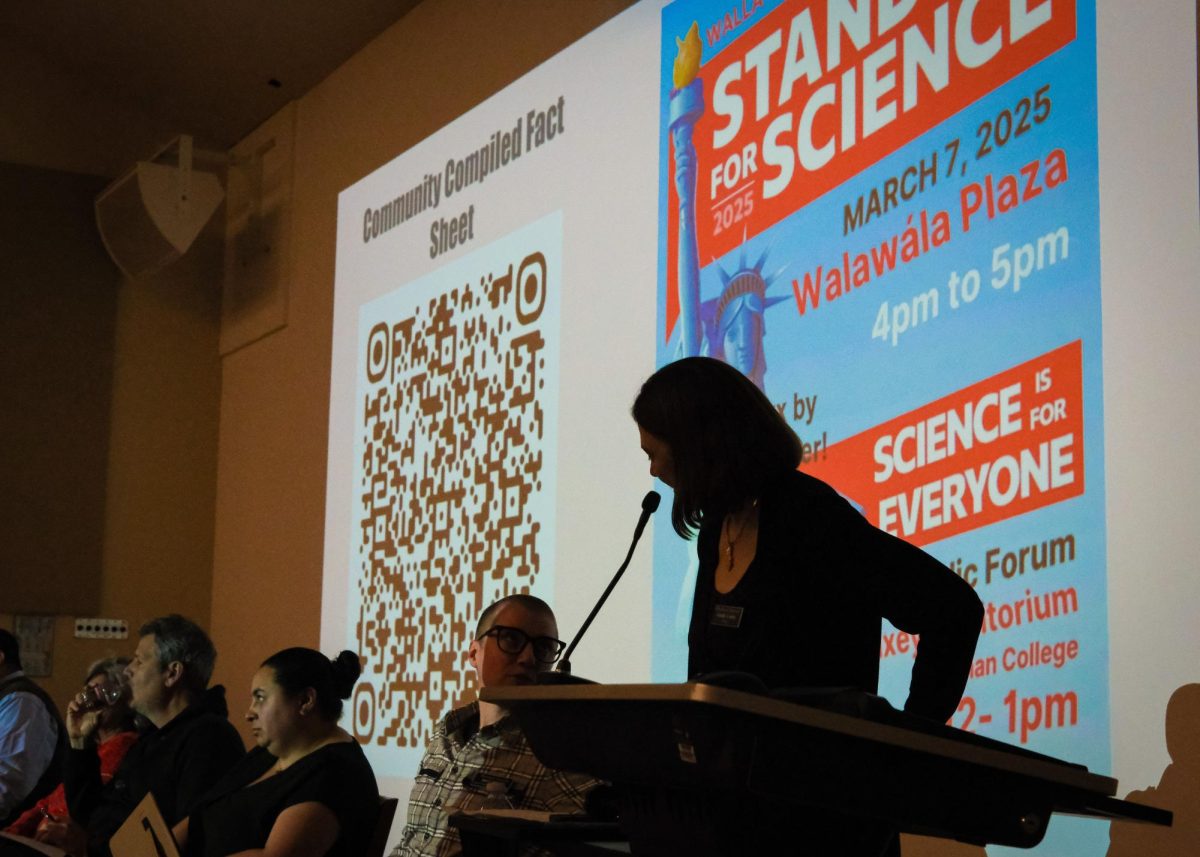
This article was co-authored by Karah Kemmerly
Dr. George H. Ball, whose influence at Whitman College spanned over five decades, passed away on Jan. 1, 2012 at the age of 96, but his words and actions continue to impact those who knew him.
Ball was born in Australia, and raised on a small farm in upstate New York. He later met and married his wife Nancy with whom he had four children.
Before coming to Whitman, Ball earned a law degree from Cornell University in Ithaca, N.Y., and his doctorate in religion from Yale University.
As a participant in the Vietnam War protests, Ball established himself as an individual with liberal viewpoints, often clashing with popular opinions during the McCarthy era.
Ball started working at Whitman in 1960 after his ideology caused him to lose a number of positions at other universities, including the University of Denver where he refused to sign an anticommunist oath.
At Whitman, Ball established the religion department. He would continue to teach introductory religion courses well after his retirement from teaching in 1980.
Alumna Meda Chesney-Lind ’69, a Professor of Women’s Studies at the University of Hawaii at Manoa, has fond memories of a religion class she took from Ball.
“He always asked his students about themselves early in the semester. And then he genuinely listened to what the students said. It made you feel like you were actually someone in the class and not just hearing a lecture,” she said.
After his retirement from teaching, Ball began working as Whitman’s Stuart Coordinator of Religious and Spiritual life.
“[Ball’s] ability to make anyone in his presence to feel genuinely cared for was something that I think affected anyone who came into contact with him,” said current Stuart Coordinator of Religious and Spiritual Life, Adam Kirtley.
Chesney-Lind said that Ball impacted students more with his actions than he did by talking about religion.
“I felt very open talking to Dr. Ball about all religions and topics,” she said. “Especially in this time period, when we have politicians talking about their religion, who are proud of their intolerance, we need to look at Dr. Ball. He embodied what it means to live a good life and that doesn’t mean talking about religion.”
Kirtley further expanded on Ball’s memorable personality.
“He was man of many causes and knew what it meant to be a citizen of the world. And yet he was profoundly kind and gentle,” Kirtley said. “You had a sense that his commitment to causes of justice were not born out of any sort of political motivation and more so born out of his passion to see humans being treated correctly.”
Chesney-Lind, believes that Ball stood apart from many other professors.
“Tentatively, people who choose higher education are all about themselves, their research, their publications, and your importance is really measured by how many awards have you won,” she said. “He wasn’t about that, he was about education and living a good life. In a true sense of the word minister, he ministered to others. I think that was what was very memorable about him.”
A memorial service for Dr. Ball will be held on Saturday, Jan. 28, 2012 at 2:30 p.m. in Cordiner Hall, discussing his work and impact on the Whitman community. Following the ceremony, a reception will be held in Reid Campus Center’s Young Ballroom.





